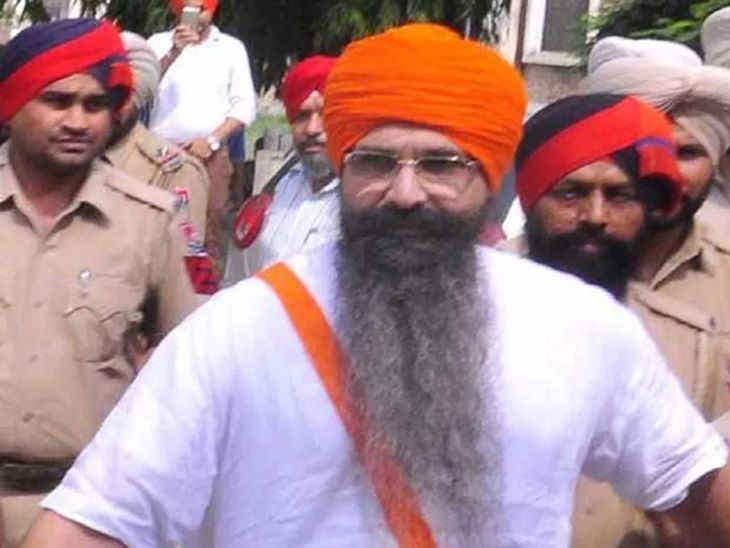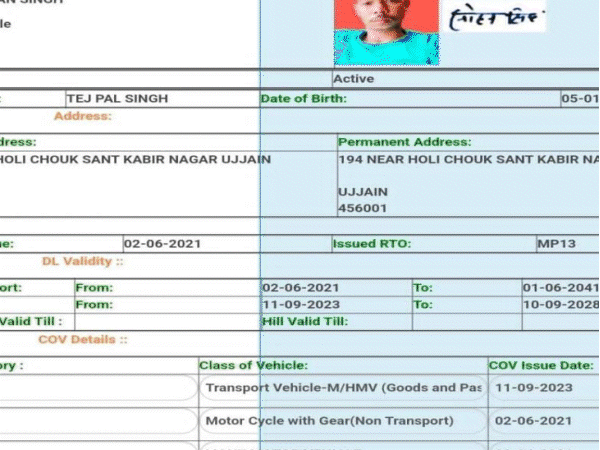New Delhi2 minutes ago
- Copy link
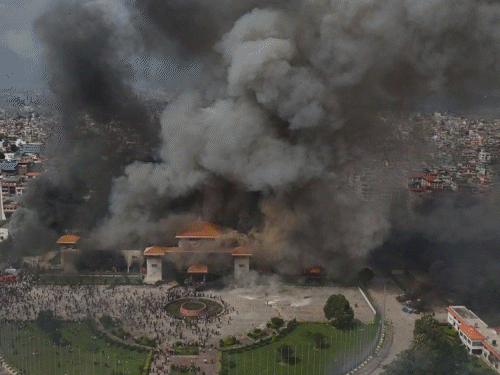
Heavy violence during GEN Z movement in Nepal
The Supreme Court on Wednesday said during the hearing in the case related to the time limit of the President and Rajpal’s Bills that we were proud of the Constitution of India. The court made this remark, referring to the recent political turmoil of Nepal and Bangladesh.
CJI BR Gawai said-instability in noseworks underlines the strength of India’s strong democratic structure.
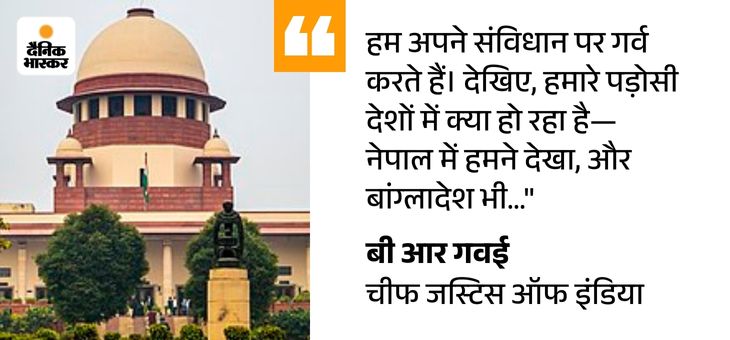
The statement came at a time when the court was discussing the deadline fixed by President Draupadi Murmu and governors to approve the state’s bills.
22 people have died in violent protests in Nepal so far
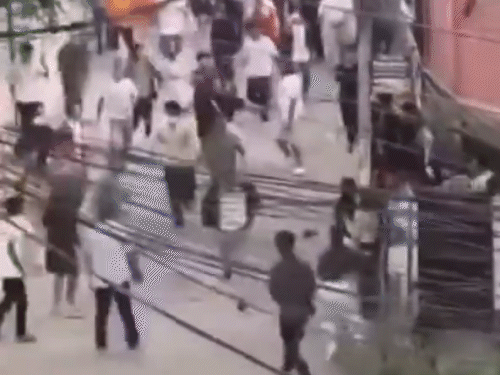
Violent demonstrations in Nepal have worsened the situation. The protesters set fire to the private residence of Parliament, PM, President and snatched their weapons from security forces. He also attacked 3 former PM’s house.
Slired the house of former PM Jhalanath Khanal. In this, his wife Rajalakshmi painter was seriously burnt. He was immediately rushed to Kirtipur Burn Hospital, where he died.
On the other hand, former Prime Minister Sher Bahadur Deuba entered and beaten in his house, while Finance Minister Vishnu Paudel was run away near his house in Kathmandu. In a video viral viral on social media, a protestor is seen kicking on his chest.
Prime Minister KP Sharma Oli resigned from the post amid violent violent incidents in the country. A army helicopter took him to a safe place.
So far 22 people have been killed in clashes and arson in the capital Kathmandu and surrounding areas, while more than 400 people have been injured. Read full news …
2 September 2025: Supreme Court said- will explain the constitution in the President’s case
The Supreme Court had said on September 2 that it would interpret the constitution only in the case of the President, not in separate cases related to any state or person. The court made this comment in the case that implemented the deadline to sign the bills sent by the state government.
During the hearing, Solicitor General Tushar Mehta said that if senior advocate Abhishek Manu Singhvi gives examples of states like Andhra Pradesh, Telangana or Karnataka, the Center will also have to file an answer. On this, a five-judge bench headed by CJI BR Gawai said-

We will not discuss matters of different states, but will only look at the sections of the Constitution.

At the hearing, Singhvi said that if the assembly does not want to send a bill back, it can automatically be rejected. If the Governor does not return the bill to the Legislative Assembly, then the process of Article 200 will stop.
In fact, in May, President Draupadi Murmu asked the Supreme Court whether the court could set a time limit for the governors and the President to decide on the bills.
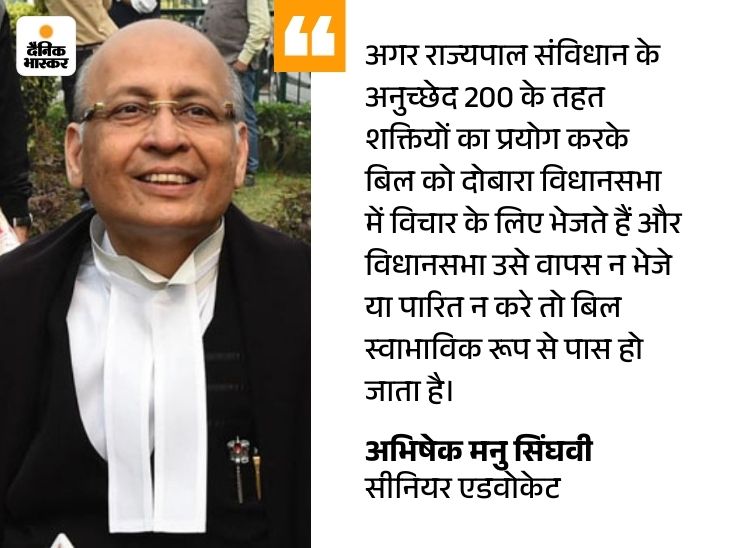
CJI asked- what will happen if the governor stopped the bill?
CJI asked Singhvi that what would happen if the Governor should stop the bill and do not send it back to the assembly?
On this, Singhvi said that in such a situation the bill is not able to move forward and according to earlier decisions, he is accepted as ‘Fall Through’, until the first condition of Article 200 is fulfilled.
Article 200 gives the Governor the right to stop the bill
Article 200 empowers the Governor to either approve the bill passing from the assembly, stop the approval, send it back for reconsideration or reserve to the President.
The first condition is that if the assembly is sent back after re -consideration, then the Governor will have to approve it.
The Center had said- State Governments cannot go to SC in the case
The Supreme Court has already said that if the Governor keeps the bill with indefinite time, then the importance of the word ‘quick’ will end. However, the central government had argued that the state governments could not knock the doors of the Supreme Court in this matter, as the decisions of the President and the Governor do not come under the purview of judicial review.
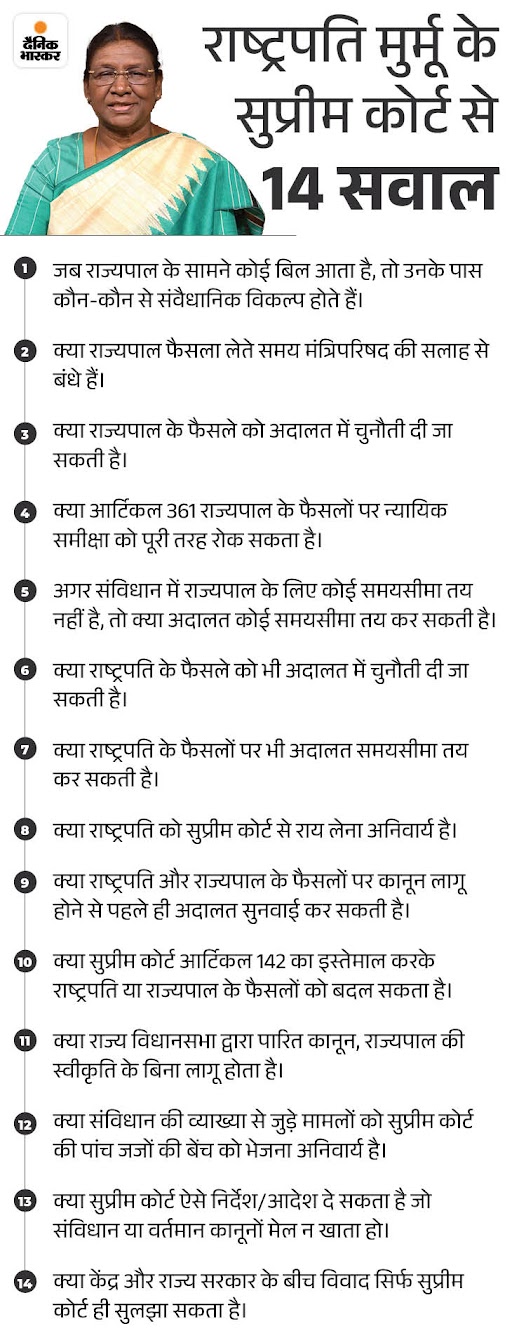
Controversy started from Tamil Nadu …
The case was raised from the dispute between the Tamil Nadu Governor and the State Government. Where the state government bills were stopped from the governor. The Supreme Court on 8 April ordered that the Governor has no veto power.
It was said in this decision that the President will have to take a decision on the bill sent by the Governor within 3 months. The order came to light on 11 April. The President then sought opinion from the Supreme Court in the case and asked 14 questions. Read full news …
What happened in the last 5 hearing …
August 28: Center said- cannot give writ petition in state Supreme Court
The central government said that the President and the Governor cannot file a writ petition in the state Supreme Court against the action on the bills passed by the Assembly. The Center said that the state governments cannot use Article 32. Because fundamental rights are for common citizens, not for states. Read full news …
August 26: BJP ruled states said- Court cannot decide a time limit
In the last hearing on 26 August, the BJP -ruled states presented their stand in the court. Lawyers of BJP ruled states including Maharashtra, Goa, Uttar Pradesh, Haryana, Chhattisgarh, Odisha and Puducherry said that the court does not have the right to approve the bills.
On this, Chief Justice of India (CJI) BR Gawai asked that if a person would ban the bills from 2020 to 2025, should the court sit helpless? The CJI asked the central government whether the Supreme Court should renounce its responsibility as the ‘Patron of the Constitution’?
On behalf of Maharashtra, senior advocate Harish Salve said that only the Governor or the President has the right to approve the bills. In the constitution, it should be assumed that there is no system as the bill has passed without approval.
Additional Solicitor General KM Natraj (from Uttar Pradesh and Odisha) said that the President and the Governor have the right to autonomous and conscience before approved on bills. The courts cannot decide a time limit. Read full news …
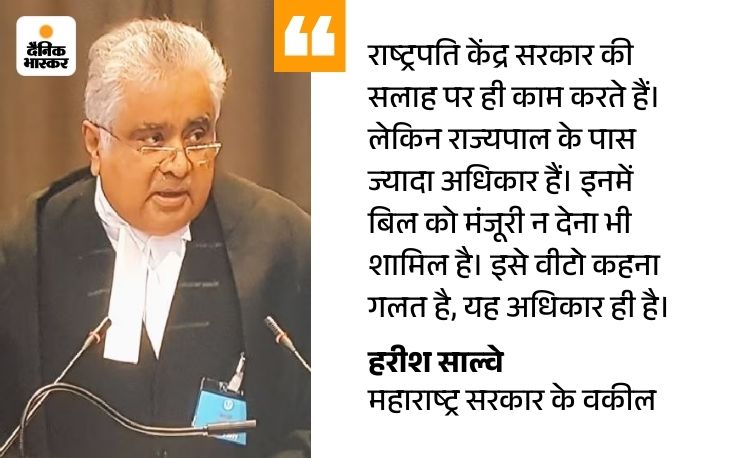
August 21: Center said- States should talk and settle disputes
The central government said in the Supreme Court that if the Governor does not take any decision on the Bills, then the states should solve the resolution instead of the court. The Center said that all the problems cannot be solved by the courts. Dialogue should be given priority in democracy. We have been here for decades. Read full news …
August 20: SC said- Government cannot follow the will of governors
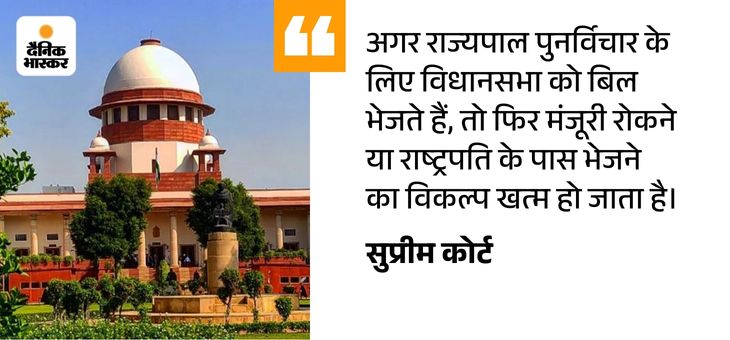
The Supreme Court said that the elected governments cannot follow the will of the governors. If a bill passes from the state assembly and comes to the Governor for the second time, the governor cannot send it to the President. The court said that the governor does not have the right to stop the approval indefinitely.
August 19: SRakar Boli- Can the court write again
In the first day hearing on the matter, Attorney General R Venkatarmani on behalf of the Central Government said on the April 2025 decision of the Supreme Court that whether the court can re -write the constitution? The court looked at the Governor and the President as a general administrative officer, while he is a constitutional post. Read full news …

,
Read this news related to Supreme Court …
The Supreme Court said- quarrel between neighbors is common: cannot consider it a crime; Karnataka High Court’s decision canceled
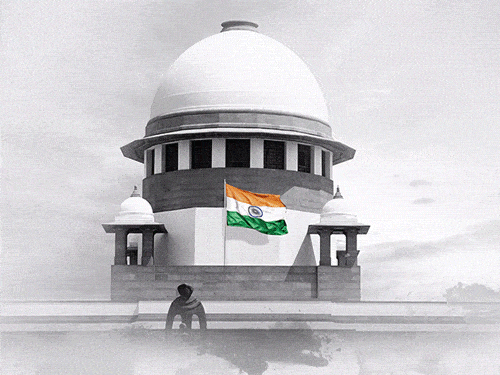
The Supreme Court said on Tuesday- it is common for neighbors to quarrel. If there is a quarrel, debate and scuffle between the neighbors, it cannot be considered a crime under the abetment of suicide (Section 306 of the IPC). A bench of Justice Biwi Nagaratna and KV Vishwanathan canceled the Karnataka High Court’s decision in which a woman was sentenced to three years for neighbor’s suicide. The court said, “Section 306 makes a case of abetment to suicide only when it is clear that the accused deliberately forced the victim to commit suicide.” Read full news …


